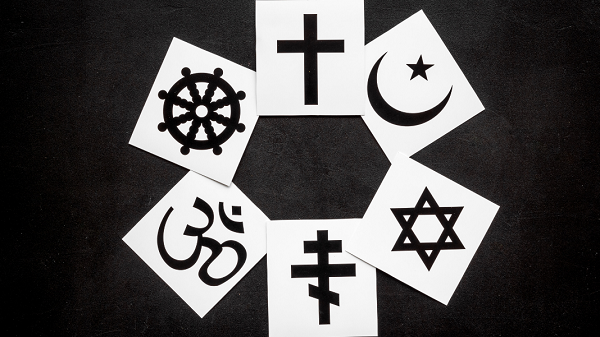
Most adults in Ghana have more confidence in religious and traditional justice systems than formal one
Findings from the 2021 Ghana Integrity of Public Services Survey (GIPSS) reveal that a greater proportion of adults in Ghana have more confidence in religious and traditional justice systems relative to the formal one.
Seven in every 10 (69.9%) adults hold the view that the religious and traditional leaders’ system effectively protects the rights of every citizen, a figure that is 10.8 percentage points higher than those who agree that the formal justice system effectively protects the rights of every citizen (59.1%).
Advertisement
The findings also indicate that one in every three adults (32.6%) report that they do not feel safe walking around in their neighbourhood at night.
A slightly higher proportion of people who report not feeling safe paid bribes in the past 12 months compared to those who feel safe: three in every 10 (29.6%) adults who do not feel safe paid a bribe compared to 25.2% of those who feel safe.
Three in every four (75.0%) adults think corruption increased in Ghana in the two years preceding the survey with about half (52.6%) thinking corruption increased due to COVID-19.
The most frequently selected strategies for fighting corruption are improving living standards (45.1% of adults), improving the access to basic services for all (41.2% of adults), and introducing an anonymous reporting system against corruption (35.9% of adults).
Less than half (46.5%) of adults in Ghana are aware of the major anti-corruption agencies i.e. Office of the Special Prosecutor, the Commission for Human Rights and Administrative Justice (CHRAJ), and the Organised Crime Office (EOCO).
These statistics were released by the Ghana Statistical Service on International Anti-Corruption Day (IACD) which is commemorated annually on December 9.
This year’s IACD seeks to raise awareness of the relationship between corruption and peace, security, and development.
The 2021 Ghana Integrity of Public Services Survey (GIPSS) is a nationally representative household survey that provides internationally comparable measures of corruption including the incidence, frequency and characterisation of bribery and corruption in both public and private services, awareness and effectiveness of anticorruption agencies, crime, feelings of security and access to justice.
The Commission for Human Rights and Administrative Justice (CHRAJ) in collaboration with the Ghana Statistical Service (GSS) and the United Nations Office on Drugs and Crime (UNODC) launched the Corruption in Ghana: People’s Experiences and Views Report on July 20, 2022.



